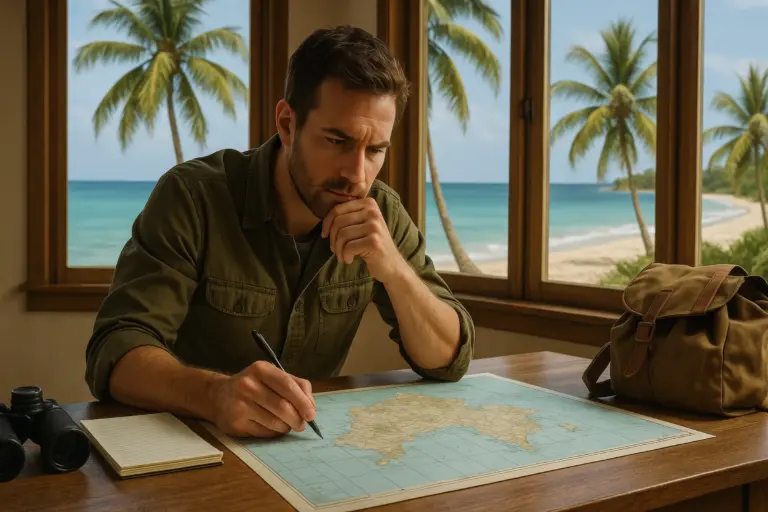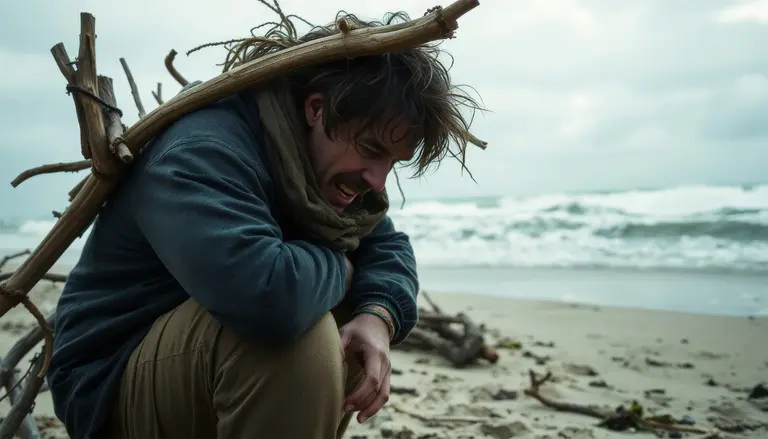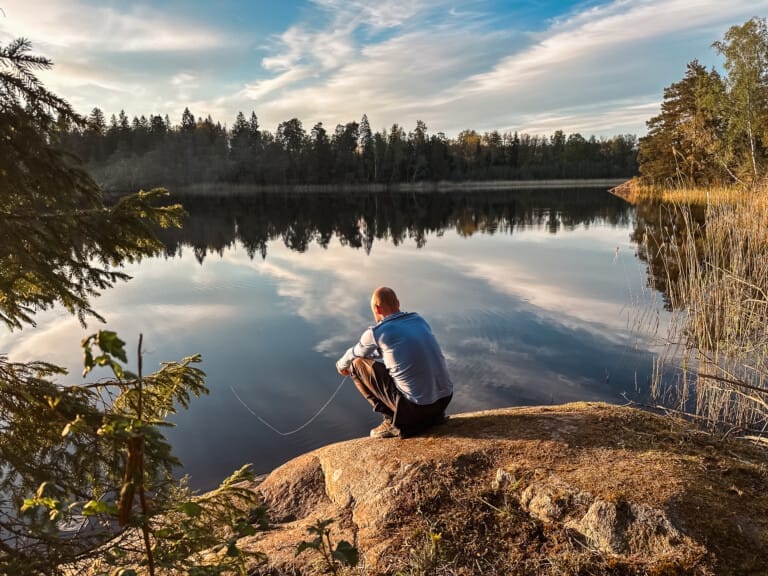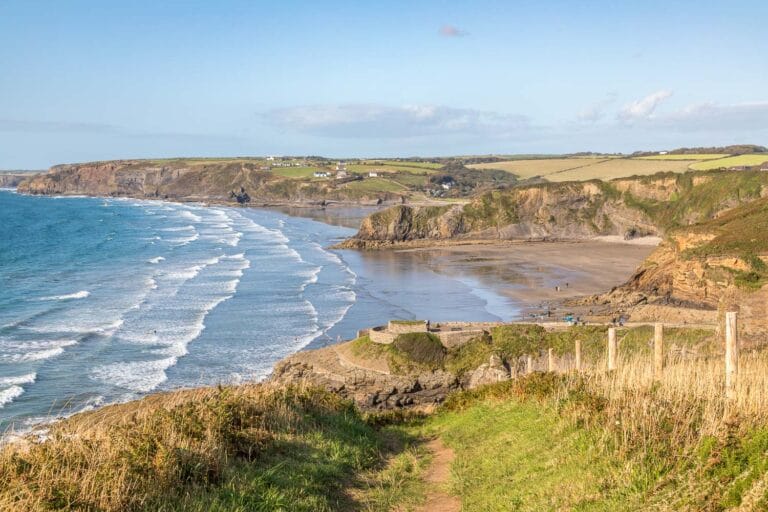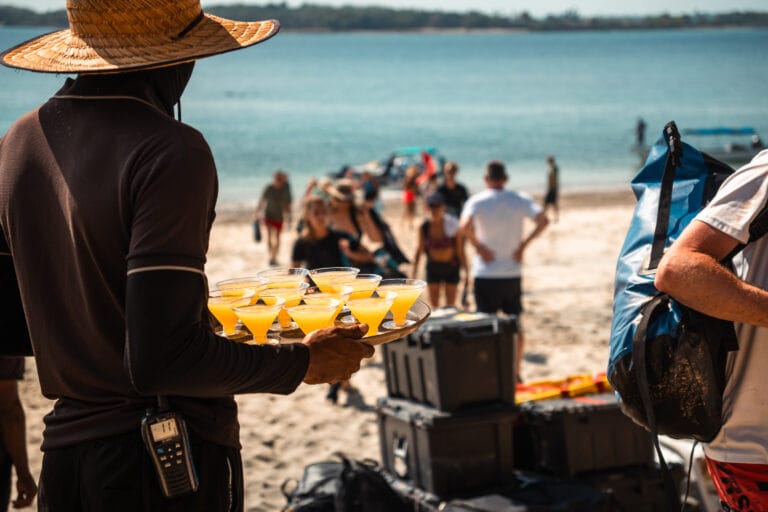Trusted by 1,000+ adventurers • 100% 5-star reviews
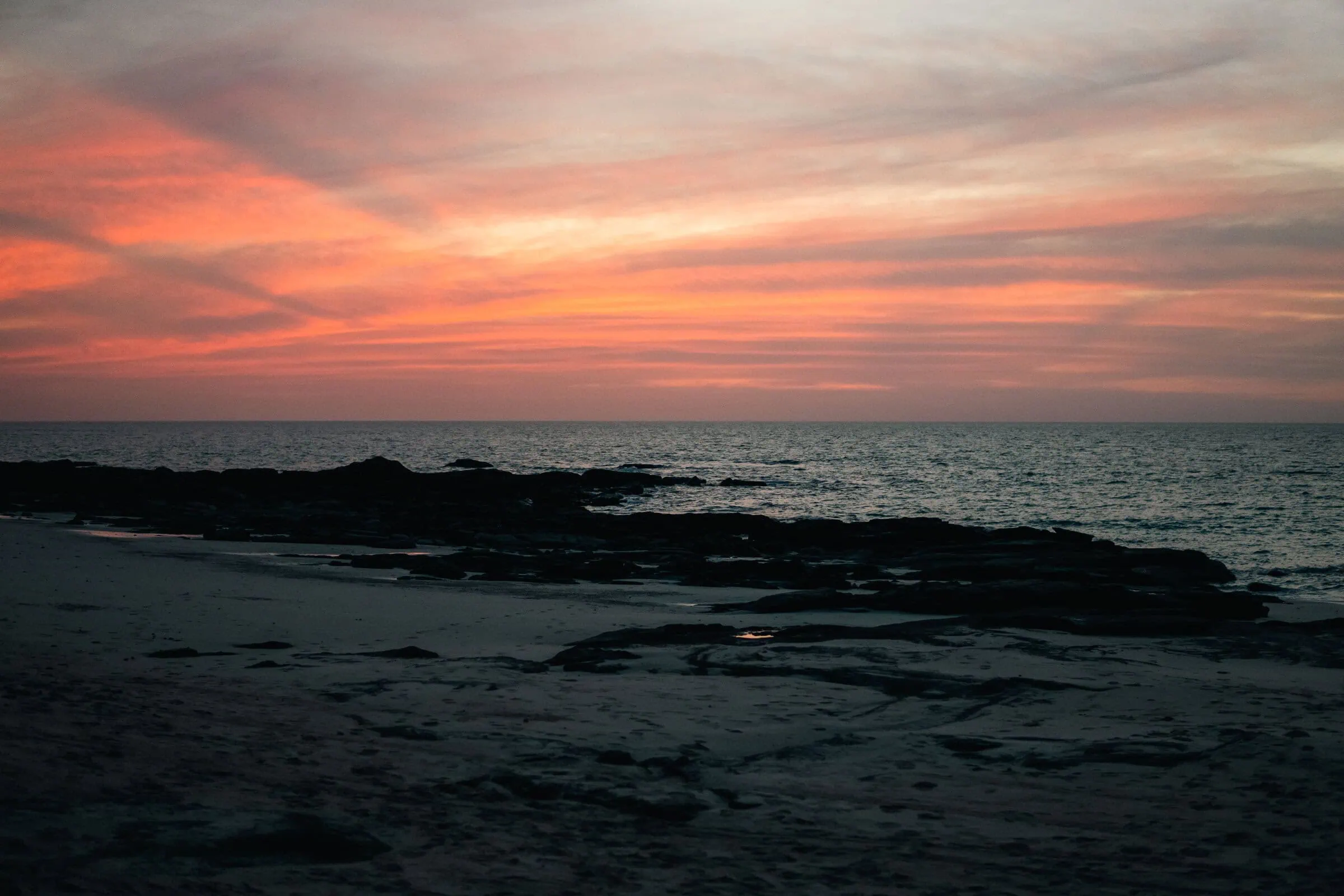
What Happens on a Desert Island (That You’ll Carry Forever)
The Thing About Island Time
I was sitting at home having lunch with my family in Lisbon, six months after returning from our Philippines expedition, when my phone buzzed with another “urgent” email. My finger hovered over the notification, but something had changed.
For the first time in my professional life, I asked myself: Is this actually urgent, or have I just forgotten what urgency feels like?
On the island, urgent meant the fire was dying in a rainstorm. Or fresh water was running low. Or someone needed immediate help with a shelter that was about to collapse. Problems with real consequences that required immediate action.
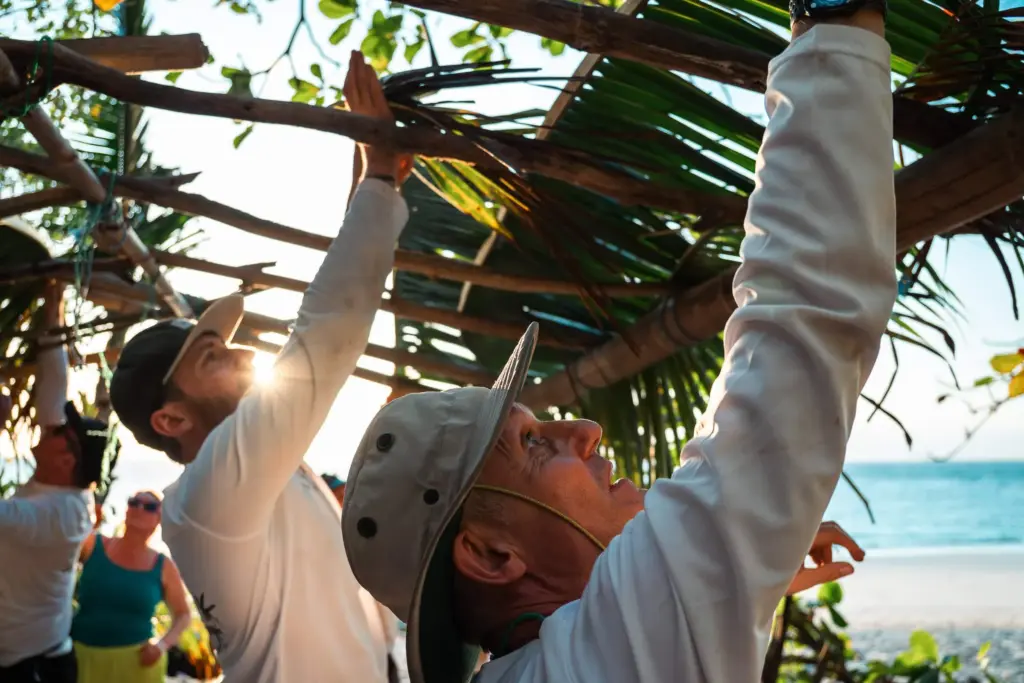
This email was about a client wanting to move a call by thirty minutes.
I turned the phone face down and finished my lunch. Slowly. Like I’d learned to eat when every calorie required effort to obtain and fire to cook.
That moment — choosing presence over reactivity in a glass tower surrounded by artificial urgency — was when I realized the island hadn’t just taught me survival skills. It had rewired my nervous system’s relationship with what actually matters.
A week in the wild becomes years of seeing through the manufactured emergencies that keep most people in a constant state of low-grade panic.
The Gifts That Keep Giving
The transformation doesn’t announce itself with fanfare. It sneaks up in ordinary moments, like discovering you’ve developed a completely different relationship with your own mind.
When Less Becomes More
Sarah, a marketing executive from London, came home and immediately cleaned out her closet. Not spring cleaning — surgical removal. “I kept thinking about how good it felt to own only what I could carry,” she told me. “Suddenly my apartment felt like a storage unit for someone else’s life.”
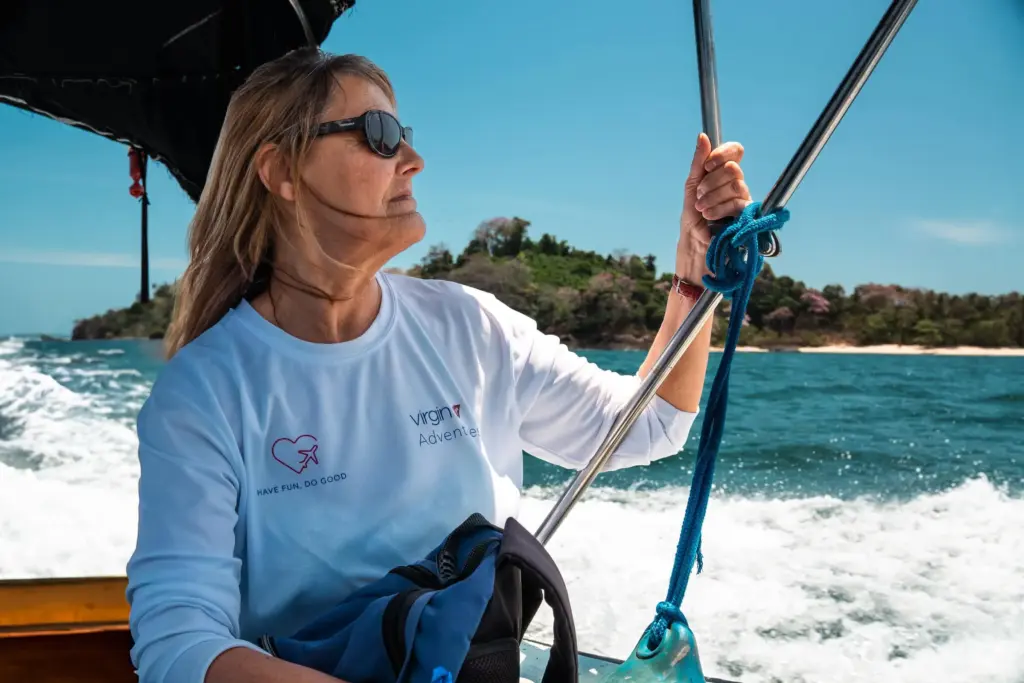
Six months later, she’d moved to a smaller place, sold her car, and started biking to work. Not from environmental guilt or financial pressure, but because simplicity had become physically pleasurable. Her nervous system had tasted what it felt like to need less, and abundance started feeling like noise.
The neuroscience explains why: when you live with genuine scarcity for even short periods, your brain’s reward systems recalibrate. Dopamine pathways that once fired for acquisition start firing for appreciation. The same neural circuits, but triggered by gratitude rather than consumption.
The End of Mental Chatter
Tom, a software engineer who’d struggled with anxiety for years, described the change like this: “My thoughts used to feel like a browser with fifty tabs open. Now there’s just… space between thoughts.”
On the island, when your survival depends on keeping that fire going and catching dinner, your mind stops generating elaborate scenarios about things that might happen next Tuesday. Attention becomes singular, focused, present.
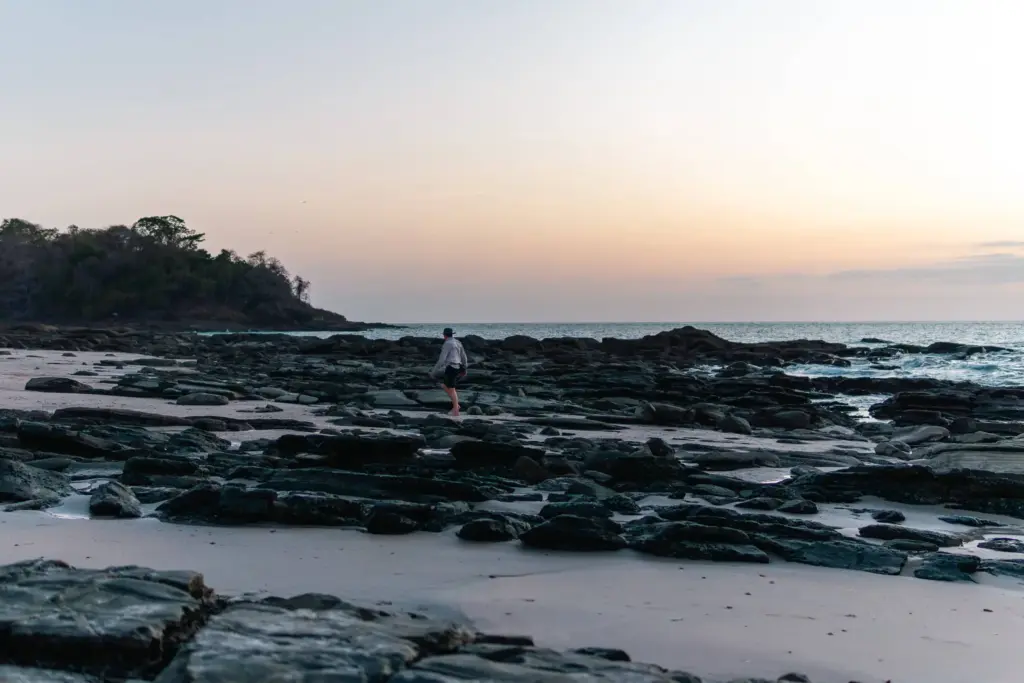
But here’s what surprised Tom most: that mental clarity didn’t disappear when he returned to civilization. His brain had remembered how to focus on one thing at a time. Meditation, which had felt impossible before his expedition, became as natural as breathing.
Evolutionary biologists call this “attention restoration theory.” Natural environments, especially those requiring active engagement, literally restore cognitive function depleted by modern multitasking. But the island experience goes deeper — it rewires your default attention patterns.
Sleep Like a Human Being
Emma, a project manager who’d relied on melatonin and sleep apps for years, started sleeping through the night within days of returning home. “I’d forgotten what it felt like to be actually tired,” she said. “Not stressed-tired or screen-tired, but body-tired from real work.”
On the island, your circadian rhythms sync with actual sunlight patterns. No blue screens confusing your pineal gland. No artificial stimulation keeping stress hormones elevated past sunset. Just the ancient rhythm of working during daylight and resting when darkness falls.
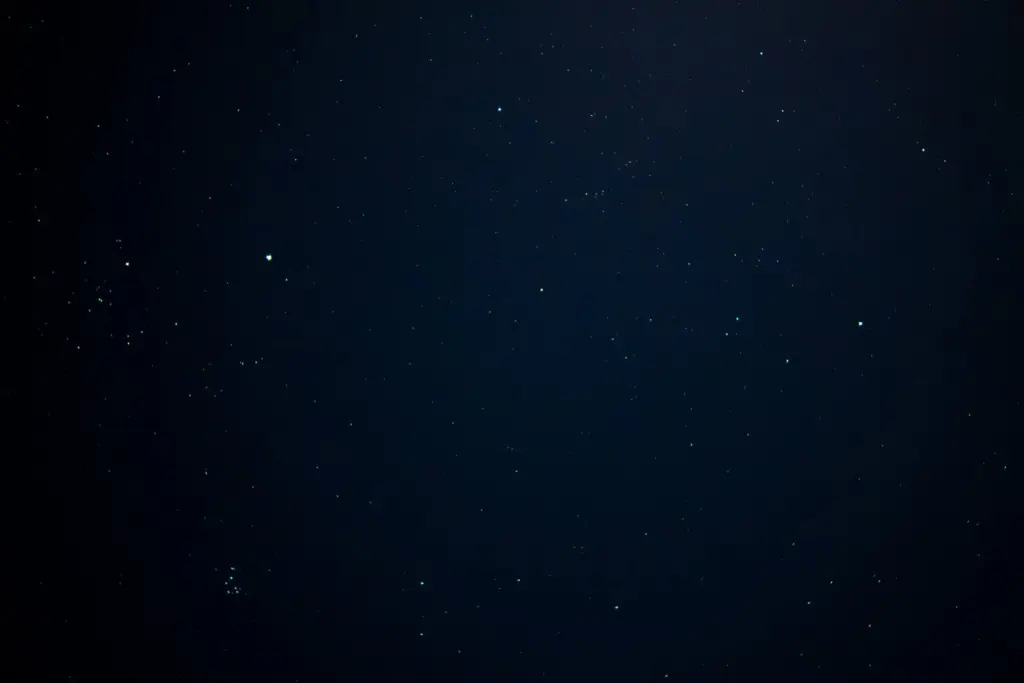
Sleep researchers have documented how even short periods of natural light exposure can reset disrupted circadian cycles. But the deeper change comes from what psychologists call “earned fatigue” — exhaustion that comes from meaningful physical and mental challenges rather than chronic stress.
Decision-Making That Actually Works
Marcus, an architect who’d spent months agonizing over which coffee machine to buy, found himself making major life decisions with startling clarity. “I realized I’d been overthinking everything because nothing felt truly important,” he explained. “When you’ve had to decide between shelter and fire while storm clouds are building, choosing between job offers becomes obvious.”
The island strips decision-making down to essential criteria: What serves survival? What supports the group? What can I actually control? These same filters, applied to modern choices, eliminate most of the complexity we manufacture around fundamentally simple decisions.
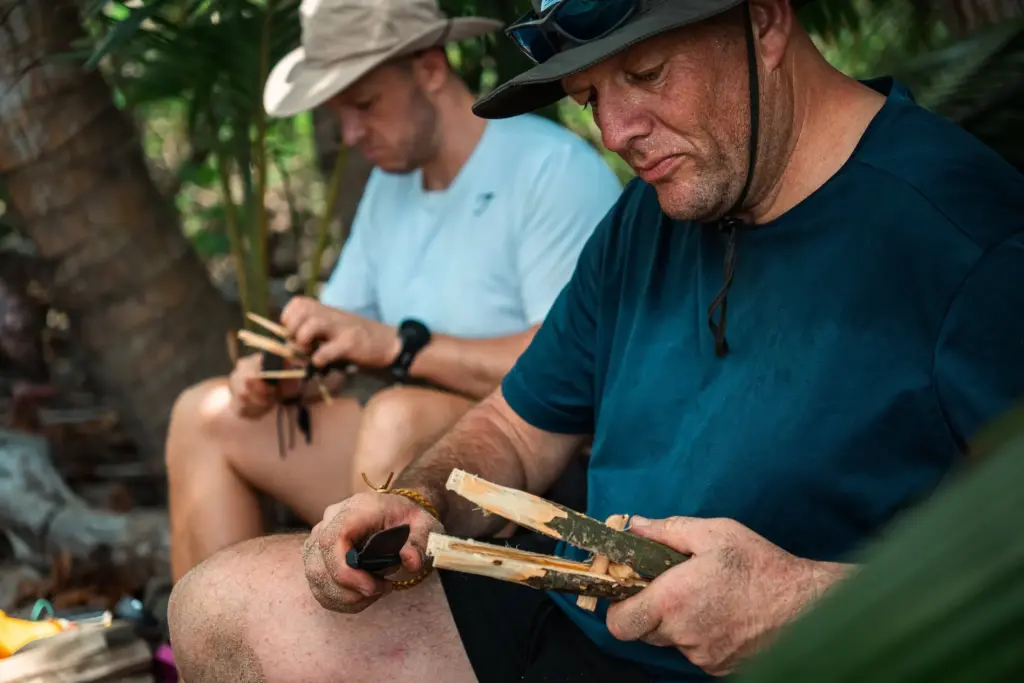
Cognitive psychologists call this “satisficing” — choosing options that meet your criteria rather than obsessing over optimal outcomes. Hunter-gatherer societies make decisions this way naturally. Industrial societies train us to optimize endlessly, creating decision paralysis around choices that matter much less than we think.
Why the Changes Stick
Most people expect peak experiences to fade like vacation tans. But island transformations seem to have unusual staying power. I’ve tracked participants for years, and the changes compound rather than diminish. And they come back again and again.
The reason is embodied learning. When you discover that you can create fire with your hands, that knowledge doesn’t live in your conceptual mind — it lives in your muscle memory, your spatial awareness, your confidence in your body’s capabilities. These aren’t insights you can forget. They’re capacities you’ve proven to yourself under real pressure.
Jake, who’d struggled with imposter syndrome throughout his tech career, put it this way: “I spent years reading about confidence and resilience. On the island, I actually experienced what those words mean. Now when I’m in a difficult meeting, part of my brain remembers that I once kept a group warm and fed when everything depended on my decisions.”
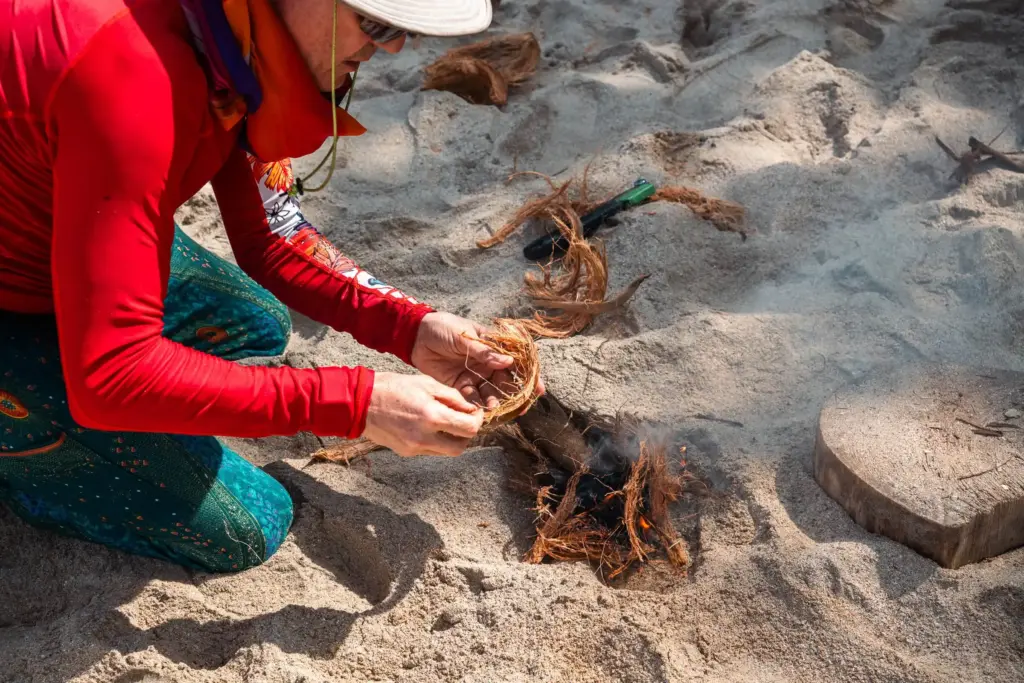
Neuroscientists studying skill acquisition show that complex challenges requiring multiple cognitive systems — like survival situations — create more durable neural pathways than isolated learning experiences. The island integrates physical, emotional, social, and intellectual challenges simultaneously, creating what researchers call “deep encoding.”
The Quiet Revolution
The changes aren’t dramatic. Nobody returns from the island as a completely different person. But the shifts are persistent and self-reinforcing.
Lisa, a financial advisor, described it perfectly: “I didn’t become someone new. I became more myself. Like the island had stripped away everything that wasn’t actually me.”
This aligns with what psychologists call “authentic self-expression” — behavior that aligns with intrinsic values rather than external expectations. When social media and consumer culture aren’t available to define identity, people often rediscover preferences and capabilities they’d forgotten they possessed.
The Biology of Lasting Change
Why do eigth days in the wild create changes that last for years? Because the island activates ancient biological systems that modern life has put into hibernation.
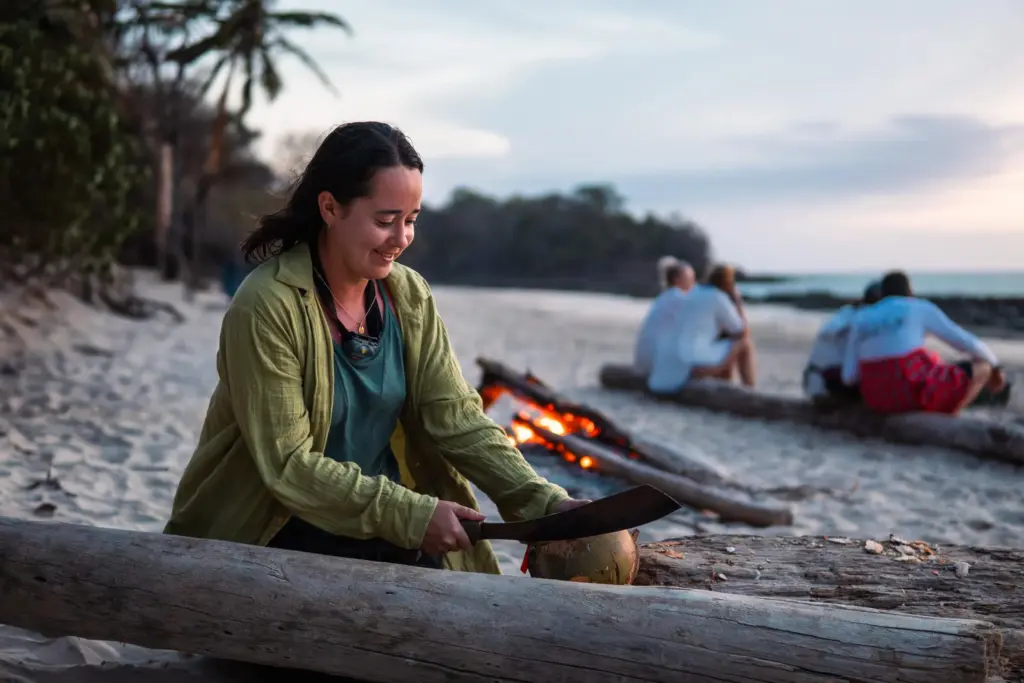
Stress inoculation research shows that controlled exposure to manageable challenges literally strengthens neural pathways related to resilience and adaptation. But the wilderness experience goes beyond standard stress training — it reactivates what evolutionary psychologists call our “adaptive toolkit.”
For 99.9% of human history, we lived in small groups where individual competence directly affected group survival. Our nervous systems are calibrated for environments where personal skills matter, where natural consequences provide immediate feedback, where community bonds form through shared challenges.
The island temporarily recreates these conditions. Your brain remembers how to operate in its original context. And that remembering, once activated, influences how you navigate all subsequent environments.
If You Want That Reset Too
Anna, a nurse from Portland, scheduled her island expedition for November specifically because she wanted to “reset before the year ends.” She told me: “I realized I’d been living the same year on repeat. I needed something to mark a real transition.”
November in the Maldives offers perfect conditions for this kind of internal recalibration. The weather is ideal — dry season beginning, gentle temperatures, crystal-clear water that makes every challenge feel more like collaboration with paradise than endurance test.
But more importantly, November timing allows you to integrate insights before the holiday season’s manufactured urgency sweeps you back into unconscious patterns. You return with new criteria for what deserves your attention and what you can simply let pass by.
The island doesn’t give you a new life. It gives you new eyes for seeing the life you already have.
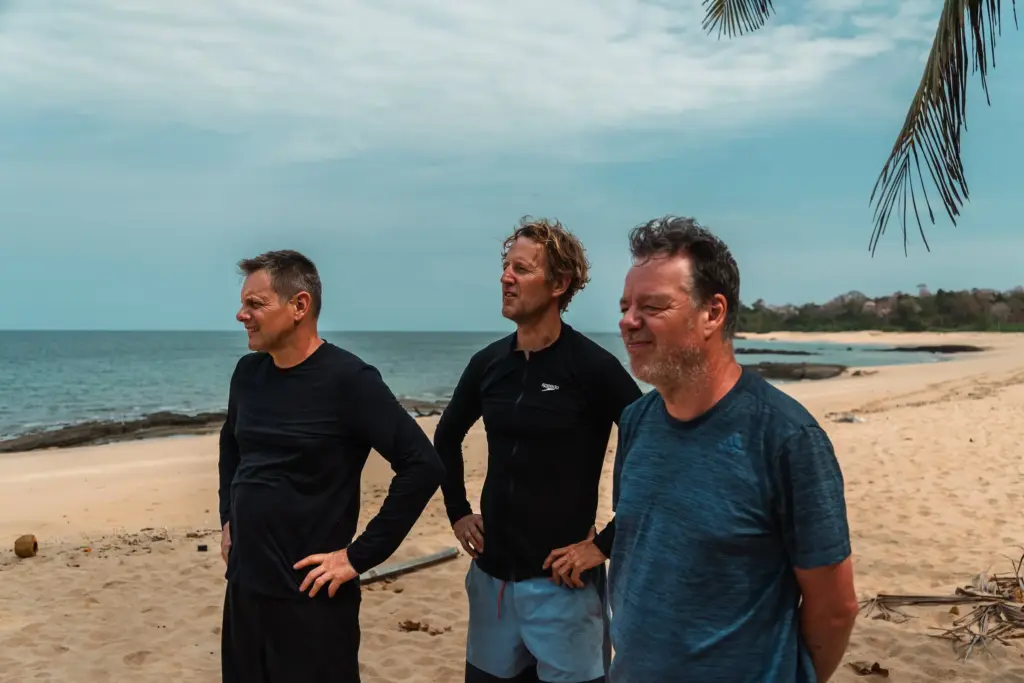
What would change if you stopped optimizing your circumstances and started trusting your capabilities? What would shift if you distinguished between genuine problems and manufactured emergencies? What would open up if you remembered that your body contains solutions your consumer habits have convinced you to purchase?
These aren’t philosophical questions. They’re practical investigations that the island makes unavoidable.
The mud under your fingernails washes off. The confidence in your own competence becomes permanent.
Ready to discover what you’ll carry forever? Our November Maldives expedition offers ideal conditions for first-time participants. View upcoming trips here or read what others have to say about our trips.
Eight days on an island. Years of seeing differently. The math works better than any investment you’ll find in the markets.

